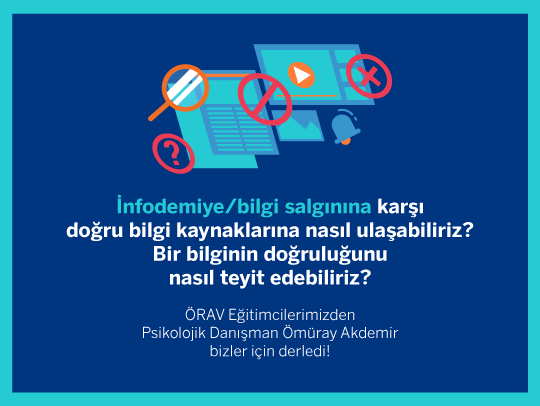Emotions such as fear, anxiety and anger are experienced intensely after a disaster. It is important to express these emotions in a healthy way. People should be allowed to experience their emotions.
Fear is especially caused by a threat to existence. It is necessary to reassure a fearful individual, to make him/her feel safe, and to listen to an angry individual calmly and patiently, to try to understand and to give the message "I care about you".
Children want to know that they are loved, cared for and safe. We adults may ignore them in order to suppress our anxieties and fears and think that they are not affected.
Children may also be suppressing their feelings by ignoring them or pretending to be unaffected.
Children may have difficulty understanding disasters such as earthquakes. It is important to convey the situation to them in short and clear sentences and then give the message "you are safe".
"There was an earthquake, houses collapsed, people were damaged, doctors and officials are working to save them, but you are safe, we are with you, we are together."
Because of the fear and anxiety they experience, children always want to be with us and do not want to be separated. We should be patient and let them know that we are experiencing similar feelings.
"I know you are very upset, you are sad, I am also very sad, what happened has affected us all"...
Children tend to blame themselves. If your face is sullen, if you are constantly sad, it may lead to this thought.
By asking the question "I am very sorry for what happened, how do you feel?", we both express our own feelings and pave the way for them to express themselves.
Playing games and drawing with children allows them to express their feelings in a healthier way.
Avoid expressions such as "Boys are not afraid, there is no earthquake, what is there to be afraid of". The child who hears these expressions thinks that he/she is not understood.
Help them express their feelings and thoughts by asking questions such as "What do you feel?", "What do you think?".
Avoid communication barriers (consoling, questioning, commenting) while listening to the traumatised individual.
Try to listen calmly. It is enough to listen carefully, attentively and by making eye contact, just listen.
Giving the traumatised individual small responsibilities in household chores can relieve the feeling of inadequacy and worthlessness.
Approaches such as "Oh, he is already very worn out, let's not touch him" cause him to be more affected.
If the death of a relative is in question, sceptical answers may confuse them. We should explain the situation in a short, clear and simple way.
"There was an earthquake, the house where your grandfather and grandmother lived collapsed, they tried hard to save them, but they are not coming back anymore"...
As an adult, hugging them and crying, constantly shedding tears may cause children to relive the trauma.
We should also try not to reflect our hopelessness such as "everything is over now, we are ruined, we are finished". We should keep them strong by giving hope.




